 FILM
FILM « In Which Whit Stillman Remakes Metropolitan For Some Reason »
 Friday, November 4, 2016 at 9:32AM
Friday, November 4, 2016 at 9:32AM 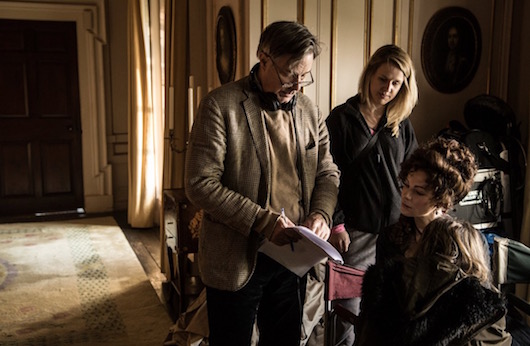
Lady Susan
by ALEX CARNEVALE
Love & Friendship
dir. Whit Stillman
93 minutes
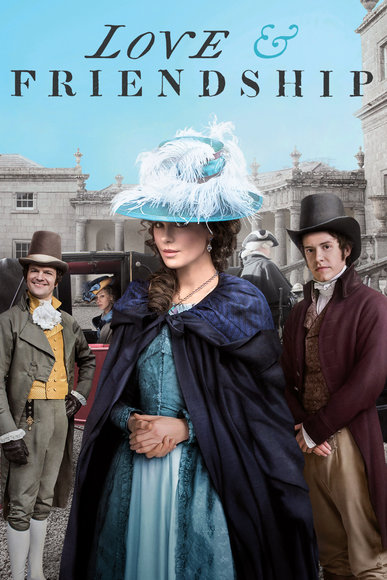 Whit Stillman is always saying things he half means. "In terms of almost everything, I think it’s a superior time, for music, architecture, manners, thought," he told an interviewer about the 18th century. What he actually is trying to say is this: "Now is terrible. Why now? Why is this now?"
Whit Stillman is always saying things he half means. "In terms of almost everything, I think it’s a superior time, for music, architecture, manners, thought," he told an interviewer about the 18th century. What he actually is trying to say is this: "Now is terrible. Why now? Why is this now?"
During one scene in Love & Friendship, a character named Frederica (Morfydd Clark) sits in a parlor and reads a book, a collection by the English poet Cowper. Her suitor approaches and can't believe his eyes. "You read both verse and poetry," he gawps. This is not a superior moment. In 1990, which was also not the best year, Whit Stillman made Metropolitan, and for the next quarter century he has tried to remake it five times, with less and less fidelity.
You see, Stillman had a set of satirical observations about the world and the society in which he grew up (prep school, Harvard, etc). It is to his credit that these were not positive impressions, but it is to his detriment that he never developed any other observations. Now in his 60s, he continues to set the basic story of Metropolitan in a variety of settings: once he even wanted to do Metropolitan in Jamaica! The general undercurrent is usually the same; it is no accident that Stillman mentions the superior manners of the late 18th century, because he has always been obsessed with bad manners.
Jane Austen shared this passion, but unlike Stillman, she felt the need to explain what good ones were. Lady Susan Vernon (a weirdly tan Kate Beckinsale) is one of Austen's great characters – a woman so intrisically diabolical that when she walks into a room the inhabitants shudder. At the beginning of Love & Friendship she has no money, she has one friend and her daughter has no husband or future. By the end, this situation is completely corrected.
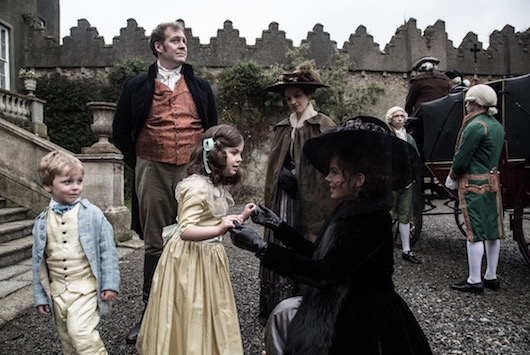
Austen found Lady Susan as detestable as some of the other characters in the milieu, but to Stillman's great credit, he sees her as the heroine. She takes an interest in the younger brother of her sister-in-law Catherine (rising star Emma Greenwell), but abandons her plan when the family objects to the merger. She is deeply in love with a married man, a certain Lord Manwaring (Lochlann O'Mearáin, who does not have a single line), who has an obstreperous wife. After they separate, she keeps him around even though he has no money, and marries a man who can get along with them both.
Beginning in 1998's The Last Days of Disco, Stillman saw something in Kate Beckinsale that other directors have struggled to extract from her performances. She projects an aura of genuine feeling at all times that allows us to relate to her despite her varying behavior, even as her availability vacillates between unlikely and impossible. Her sexuality has altered slightly as she enters middle age. Whereas before there was the sense that she might have been preserved in amber, now we verifiably know she has been in the shit. I believe she dated Michael Sheen for quite some time.
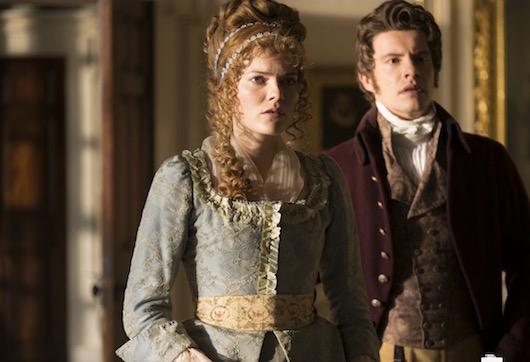
Stillman's favorite actress remains Chloe Sevigny, who probably has a good thirty years of playing Ellen Burstyn-esque roles ahead of her. Both actresses excel at the Stillman banter, which is best described in this fashion: one woman makes an observation, the other woman agrees, the first woman demurs, the second woman demurs, accommodation is reached. At times the patter goes a bit quickly, but the writing is so much better than Stillman's brief, insanely boring Amazon pilot that we are just glad he is having fun again.
Hidden behind the incredibly amusing dialogue is a more meaningful story, one that expresses the kind of feeling a mother has for her daughter. Metropolitan itself became quite moving at times, and these are the moments where Stillman himself seems surprised at the depth of his creations: that they almost have their own agency. It is just as inevitable, however, that he becomes appalled by their transparency, as in his 2011's Damsels in Distress, so it is probably for the best that Love & Friendship ends after 90 minutes.
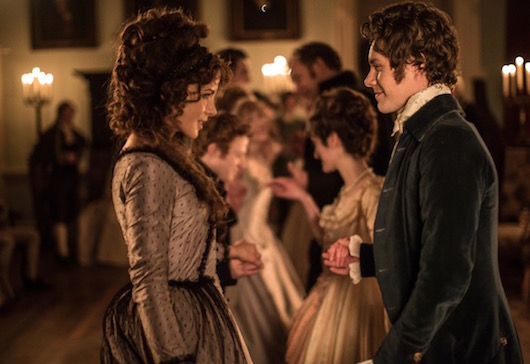
The problem with Austen, and to be honest the 18th century in general, is that it was a real dead end. To see men and women relating to each other in such a dishonest fashion is actually a bit jarring. Stillman draws particular attention to the misogyny of the period, and it is this view which persuades us that he believes the 18th century is no better than any other. He is forced to conclude there is really no special time and place to be a part of, unless you were gay and in Berlin before the war. That was not to be missed.
Allowing for his critical observations of the time period, Stillman finally seems to be enjoying himself at all times. Love & Friendship, besides being completely hysterical and the best comedy this year, unfolds its enthusiasms over even the simplest scenes. Stillman is a fantastic editor of Austen, a fact he openly admits, since he rewrote the epistolary version of Lady Susan into his own novel. If only he were this excited about tomorrow.
Alex Carnevale is the editor of This Recording.
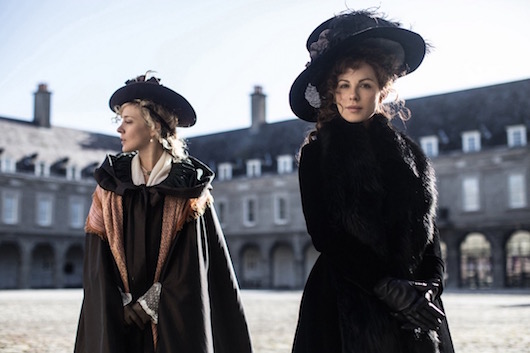
 alex carnevale,
alex carnevale,  whit stillman
whit stillman 





























Reader Comments